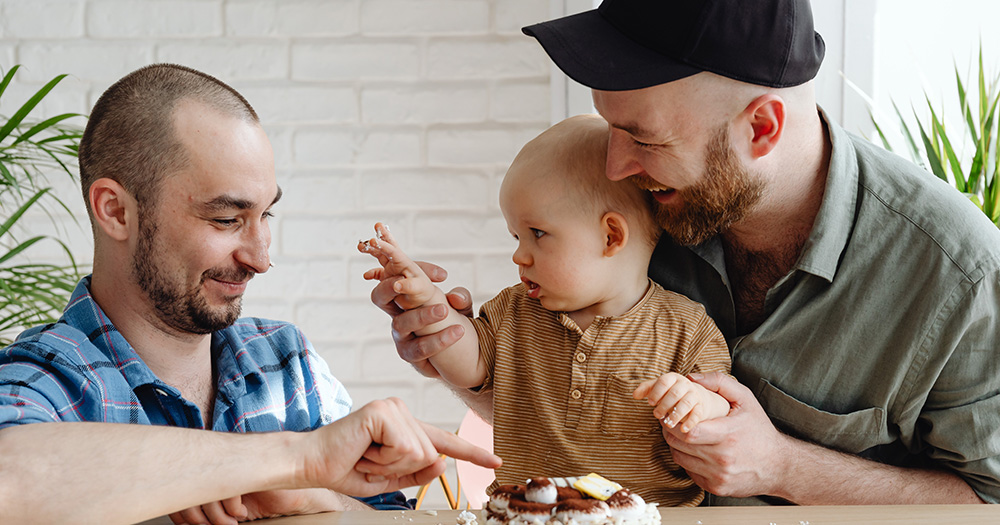The Oireachtas Joint Committee on International Surrogacy published a new report on July 6, which included the Committee’s recommendations around legally recognising and regulating international surrogacy agreements.
The content of the report comes largely from the proceedings of the 11 public meetings held by the Committee on different aspects of the topic over the course of the last three months. In forming their recommendations, the Committee focussed on how to ensure the rights, interests and welfare of both children born through surrogacy and surrogates, and the rights, interests and obligations of intended parents.
To accomplish this, “The Committee… engaged extensively with academics, legal experts and stakeholders from various organisations, nationally and internationally, on measures that can be taken in the implementation of a framework to address the issues raised,” said the Committee’s Cathaoirleach, Deputy Jennifer Whitmore TD, in a press release. “Members also engaged with children, families and surrogates who have lived experience of the surrogacy journey.”
Ireland currently does not regulate surrogacy, though the Assisted Human Reproduction Bill currently being examined and amended within the Dáil will provide a regulatory framework for altruistic surrogacy within the country.
The current lack of regulation, however, means that Ireland has no capability to recognise an intended parent as the parent, in place of a surrogate, of a child born through surrogacy.
This deficit of provisions for parental rights for intended parents in place of surrogates actively affects the LGBTQ+ community, as surrogacy presents the only option for couples to have a biological child if neither person has the ability to carry a pregnancy.
A variety of consequences arise from a surrogate being legally recognised as a parent instead of the intended parent, including a hugely problematic inability for intended parents to make medical decisions for their children, and surrogates landing with responsibilities they neither desired nor expected.
“The Committee believes that there are omissions in the Child and Family Relationships Act 2015 and AHR Bill regarding the types of AHR treatment and makeup of families covered,” the Committee’s report states. “These omissions leave and would continue to leave many families unable to gain legal recognition, and should be addressed as a matter of urgency.”
The Committee has therefore recommended that the AHR Bill be amended to include provisions for the recognition of international surrogacy agreements, along the lines of additional recommendations found within the report. The report notes that Irish families will continue to pursue international surrogacy arrangements regardless of the provision of a framework for domestic surrogacies, and that the Irish government cannot control what happens regarding surrogacy arrangements in other nations.
However, the report states, “in setting out a clear framework of requirements that must be met for the State to recognise international surrogacy arrangements, we can try to guide intended parents towards safer and more ethical surrogacies that respect the rights and welfare of all involved.”
The Committee advises the use of a “parental order system,” such as that devised in the Children and Families Relationship Act 2015, to shift legal parentage from international surrogates to Irish intended parents.
The report names 32 recommendations, many of which are the requirements the Committee believes should be met for Ireland to recognise an international surrogacy agreement, including:
- Surrogacy should be legal in the country in which it takes place.
- All parties involved should be fully informed and give their full consent.
- The child born through surrogacy should be biologically related to at least one intended parent, due to concerns about the international sale and trafficking of children.
- “The surrogate should not be financially disadvantaged due to the pregnancy, and that the intended parents should be allowed to reimburse her for all reasonable expenses, including loss of earnings, related to the surrogacy.”
Additional recommendations from the Committee address how the process of recognising a surrogacy agreement and subsequently issuing a parental order to shift legal parenthood should occur, what Ireland’s policy should be regarding children already born through surrogacies, and how to accomplish the recognition of international surrogacy arrangements quickly and effectively.
On this last point, the Committee noted that it firmly feels a legal structure for regulating international surrogacy should be included in the AHR Bill, through amending the legislation. The report argues that this is preferable to risking discrepancies and disjointedness as well as a lengthy and drawn-out process by creating entirely new, separate legislation.
The Committee’s report additionally considers the importance of the ability of children born through surrogacy to access information about their biological histories and identities. It, therefore, recommends that the National Surrogacy Register, proposed in the AHR Bill, be expanded to include information on children born through international surrogacies as well as domestic surrogacies. The Committee proposes that this information be accessible by a child’s intended parents on the child’s behalf up until the age of 12, and by the child after that point.
Should the Committee’s recommendations be incorporated into the Assisted Human Reproduction Bill, a number of issues faced by non-biological parents, both within and outside the LGBTQ+ community, will likely be resolved. The issue now rests in the hands of the Dáil.
© 2022 GCN (Gay Community News). All rights reserved.
Support GCN
GCN is a free, vital resource for Ireland’s LGBTQ+ community since 1988.
GCN is a trading name of National LGBT Federation CLG, a registered charity - Charity Number: 20034580.
GCN relies on the generous support of the community and allies to sustain the crucial work that we do. Producing GCN is costly, and, in an industry which has been hugely impacted by rising costs, we need your support to help sustain and grow this vital resource.
Supporting GCN for as little as €1.99 per month will help us continue our work as Ireland’s free, independent LGBTQ+ media.
